We Asked Nutritionists To Rank The Best And Worst Grocery Store Hot Dogs, And Their Choices May Surprise You
OK, so hot dogs aren’t the world’s healthiest food, but admit it: If they weren’t on the menu at summer barbecues, it’d feel like losing a friend.

Fortunately, with a growing number of healthier hot dogs hitting supermarket shelves, it’s become possible to indulge and still go easy on your body. You just need to know what to look out for.
First things first: “Avoid traditional or ballpark-labeled hot dogs,” Nicole Avena, a New York-based nutrition consultant, told HuffPost. “These are usually the highest in sodium and contain the most additives and preservatives.”

All processed meats are a health risk ― they’ve been linked to certain types of cancer, like colorectal cancer, because of the way they’re preserved. But there are a few types of meat that offer less risk than the standard beef hot dog, Avena said. Look for a label that indicates whole beef, turkey or chicken, as opposed to mechanically processed and separated meats.
Another important factor is sodium content. “Choose hot dogs that have less than 400 mg (or less than 20% of the daily value) of sodium per serving,” said Gretchen Zimmermann, senior director of cardiometabolic care for Vida Health. (The Dietary Guidelines for Americans recommend that adults limit sodium intake to less than 2,300 mg per day.)

Other indications of a higher-quality hot dog are if they’re uncured and nitrate- and nitrite-free, and have minimal ingredients. “Overall, uncured chicken or turkey hot dogs would be a better option, because they’re usually lower in saturated fat and less processed than beef,” Avena said.
But even if the label says “uncured,” “no nitrates added” or “all natural,” it doesn’t mean these options are necessarily healthier. Natural preservatives, such as celery powder and celery salt, may sound better, but there’s no evidence they’re safer, so it’s still best to minimize your intake.
The same goes for veggie dogs: Choose dogs with minimally processed ingredients, such as tofu, instead of heavily processed soy protein concentrate or isolate.

“An occasional processed veggie dog isn’t likely to be harmful, but these soy ingredients haven’t been well-studied, so there are still some concerns about their safety,” said Samantha Cassetty, nutrition expert and co-author of Sugar Shock.
To save you time scanning nutrition labels, here are the healthiest and the least healthy store-bought hot dogs, according to nutritionists.
A healthy beef option: Organic Valley Uncured 100% Beef Hot Dogs
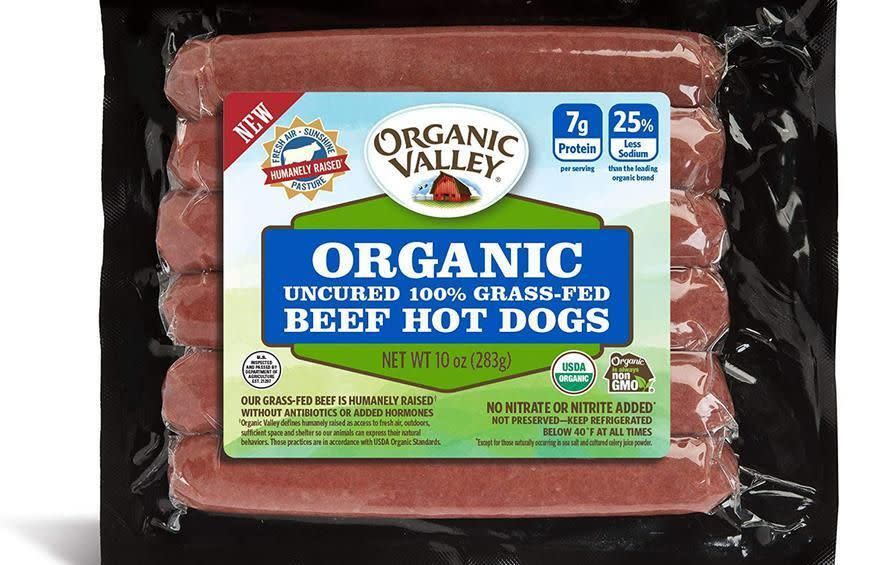
“The Organic Valley hot dogs boast healthy ingredients like organic grass-fed beef, organic spices, garlic and onion powder (although celery powder is used as a preservative),” Zimmermann said.Because they’re uncured, this makes them your best bet for avoiding high amounts of carcinogens -- and compared to traditional dogs, they’re lower in calories, sodium and saturated fat.
A healthy beef option: Applegate Naturals Do Good Dog Uncured Beef Hot Dogs
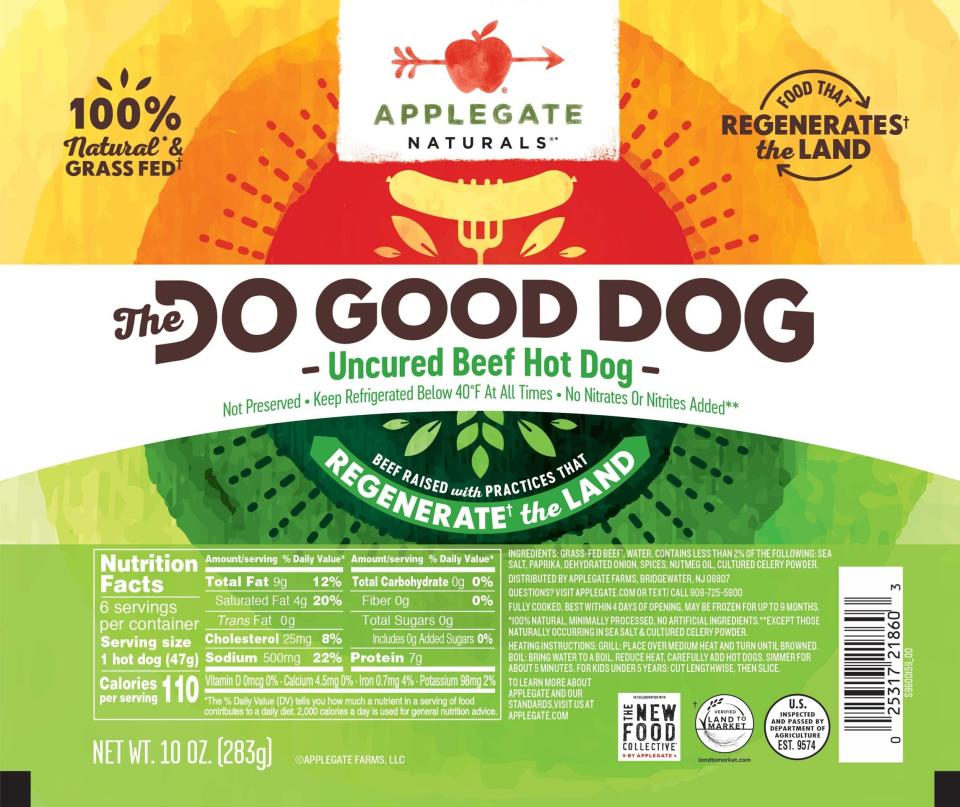
Applegate Naturals Do Good Dogs are made with regeneratively sourced beef that’s 100% grass-fed. They use just four simple ingredients: beef, water, salt and spices.“You are what you eat, and a healthier diet for the animal you’re consuming means a healthier diet for you too,” said Marissa Meshulam, a registered dietitian based in New York City.
An unhealthy beef option to avoid: Ball Park Brand Prime Uncured Beef Franks
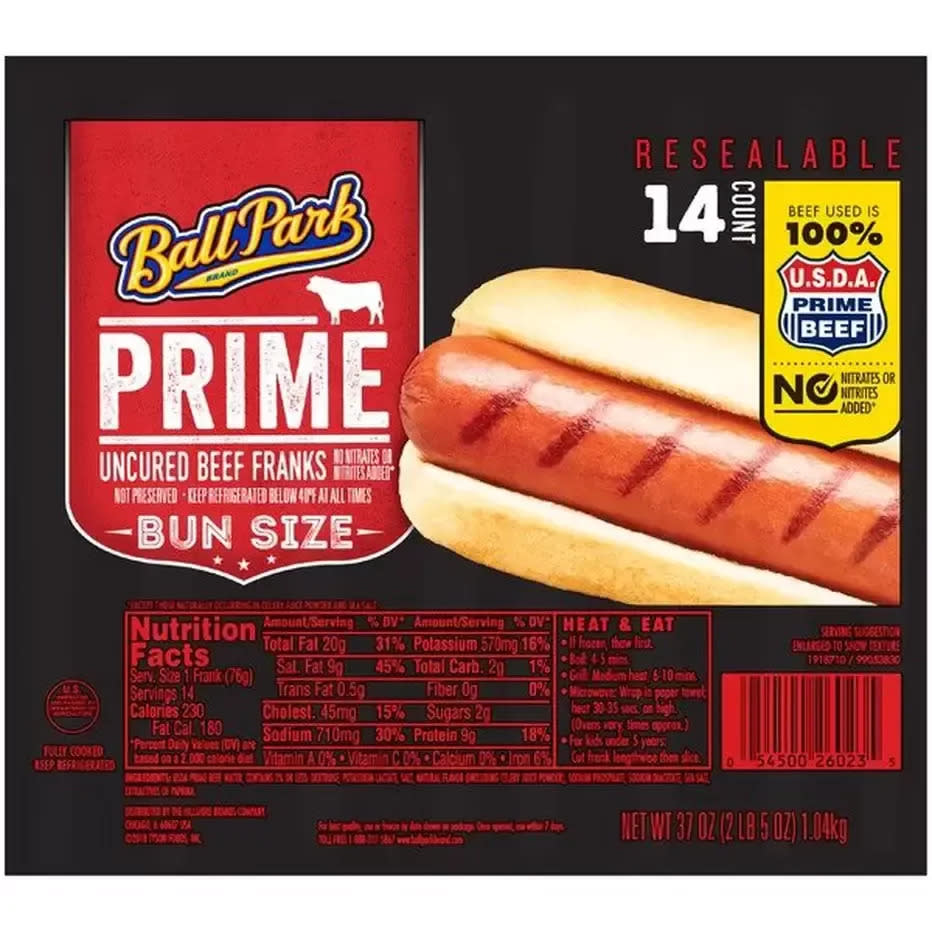
Even though the packaging says “uncured,” it only takes one glance at the nutrition facts to know these hot dogs aren’t the best choice.The Dietary Guidelines for Americans recommend limiting calories from saturated fat to less than 10% of one's total calories per day to promote heart health. “A 2,000-calorie diet would equate to less than 20g of saturated fat per day,” Zimmermann said. “The Ball Park Prime Uncured Beef Franks provides nearly half that amount in one serving.” Even before the bun, ketchup and other salty condiments and accessories are added, these hot dogs pack a whopping 710mg of sodium in one serving, as well as 230 calories, 20g of fat, 9g of saturated fat, 2g of carbohydrates and 9g of protein. Bottom line: Yikes.
A healthy pork blend: Applegate Naturals Natural Stadium Beef and Pork Hot Dogs
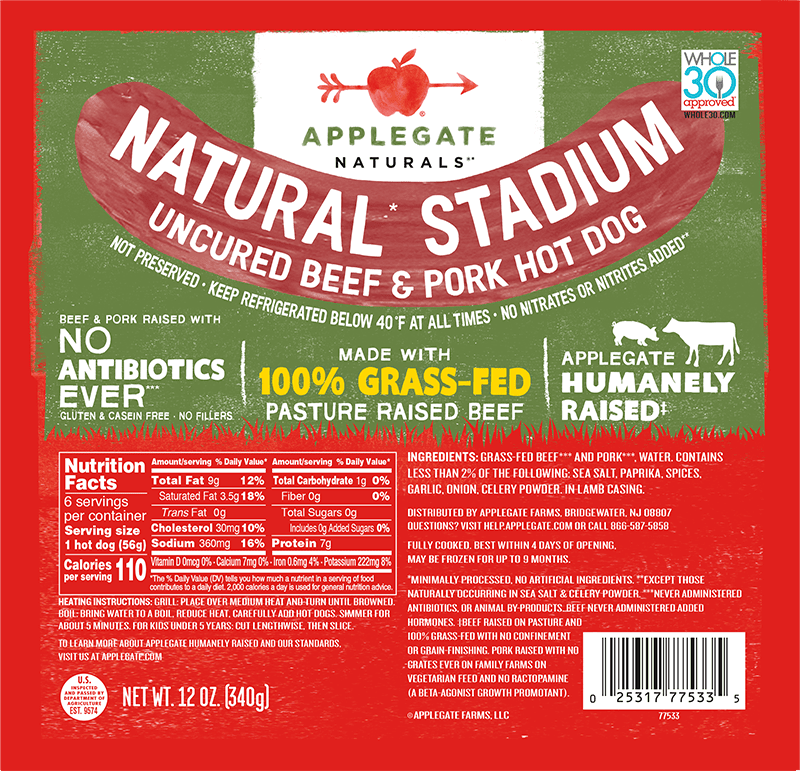
“Applegate Naturals uses antibiotic-free beef and pork to make these without any preservatives — just natural spices and herbs,” said Amy Shapiro, a New York-based registered dietitian. The franks contain no fillers and no added nitrates or nitrites (except for those naturally occurring in sea salt and celery powder).
A healthy pork blend: Seemore La Dolce Beet-a Pork Sausages
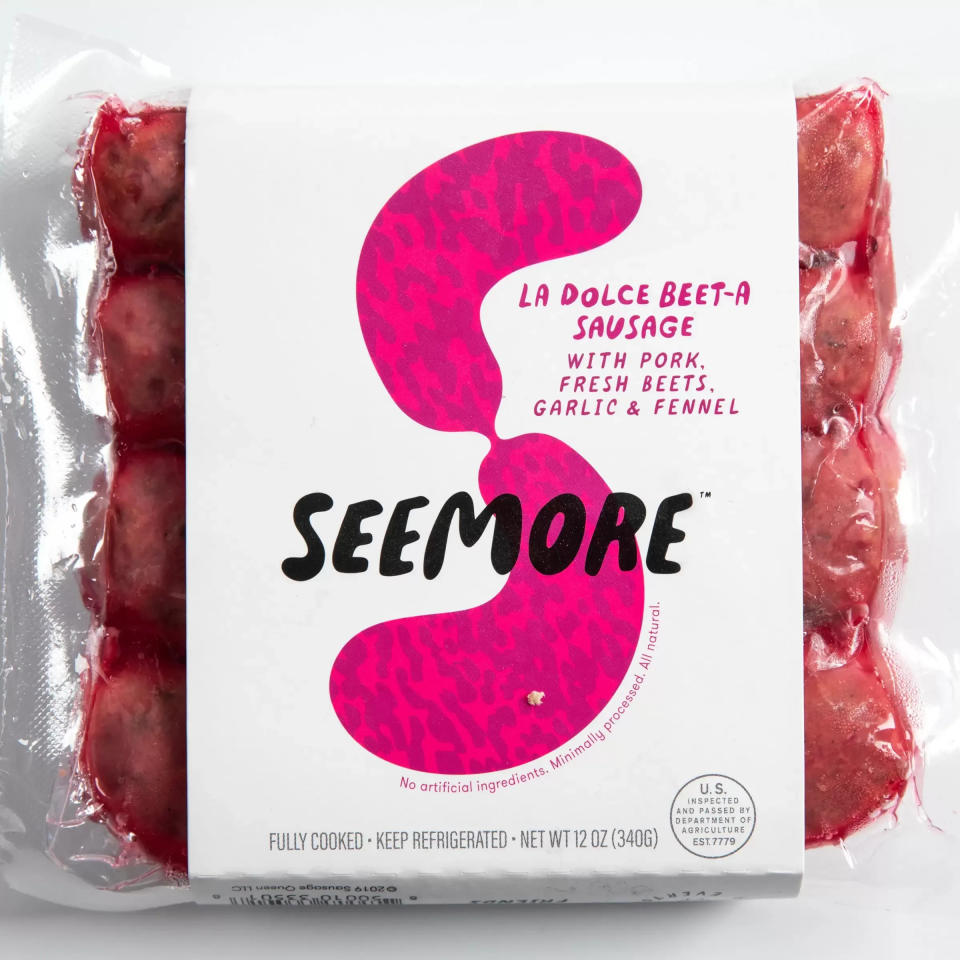
The pork used to make these sausages is animal welfare-certified, and the dogs themselves are minimally processed. “Plus, the brand adds fresh beets, garlic and fennel, which further boosts the nutrient content,” Meshulam said.There are no preservatives or phosphates, and the only nitrates or nitrites are those that naturally occur in cultured celery powder and sea salt.
An unhealthy pork blend to avoid: Kayem Beef & Pork Hot Dogs
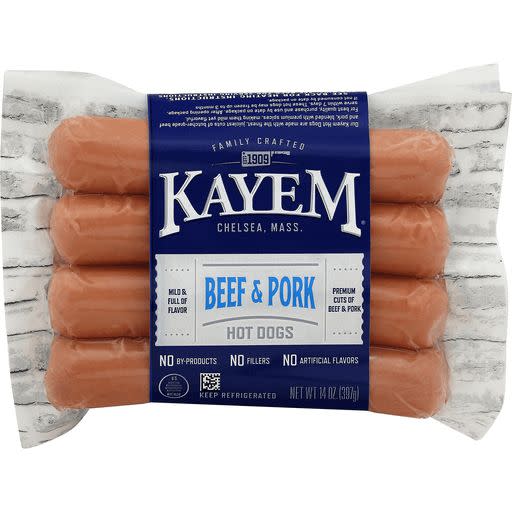
These dogs contain a boatload of fat and sodium, as well as corn syrup and dextrose (two types of added sugar), mystery flavorings and preservatives. “This can indicate the company uses pork byproducts to produce their product, not lean pork or beef,” Avena said.
A healthy turkey option: Organic Valley Uncured Pasture-Raised Turkey Hot Dogs
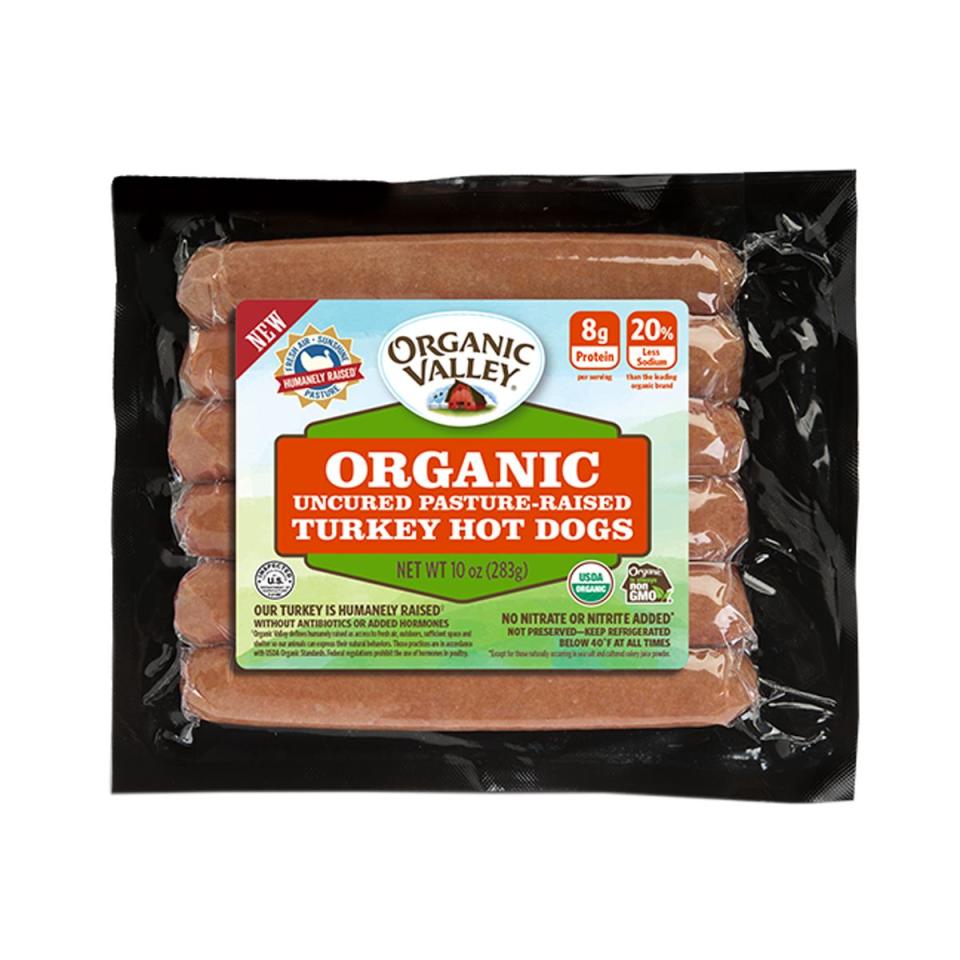
These turkey hot dogs are made using meat from animals that have been humanely raised, and the hot dogs are free from fillers and potentially harmful salt sources like sodium nitrates and nitrites, Zimmermann said. They also contain 20% less sodium than the leading organic brand.
A healthy turkey option: Applegate Natural Uncured Turkey Hot Dog
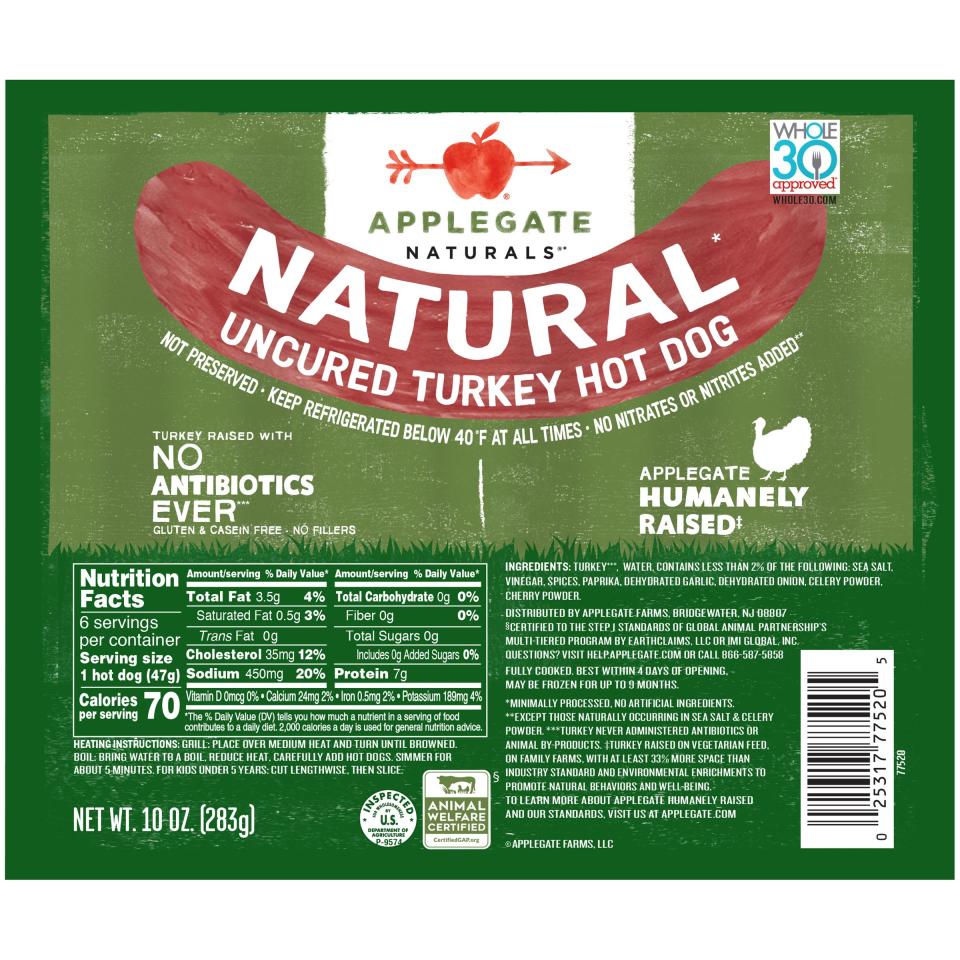
The turkey dogs from Applegate Farms are as clean as it gets — the turkey is organic and humanely raised with no antibiotics, and the hot dogs themselves contain no fillers or preservatives. “They simply contain organic turkey and organic spices and herbs,” Shapiro said. “They’re a lean and light option, coming in at 70 calories each with under 4g of fat.”
An unhealthy turkey option to avoid: Ball Park Brand White Meat Smoked Turkey Franks
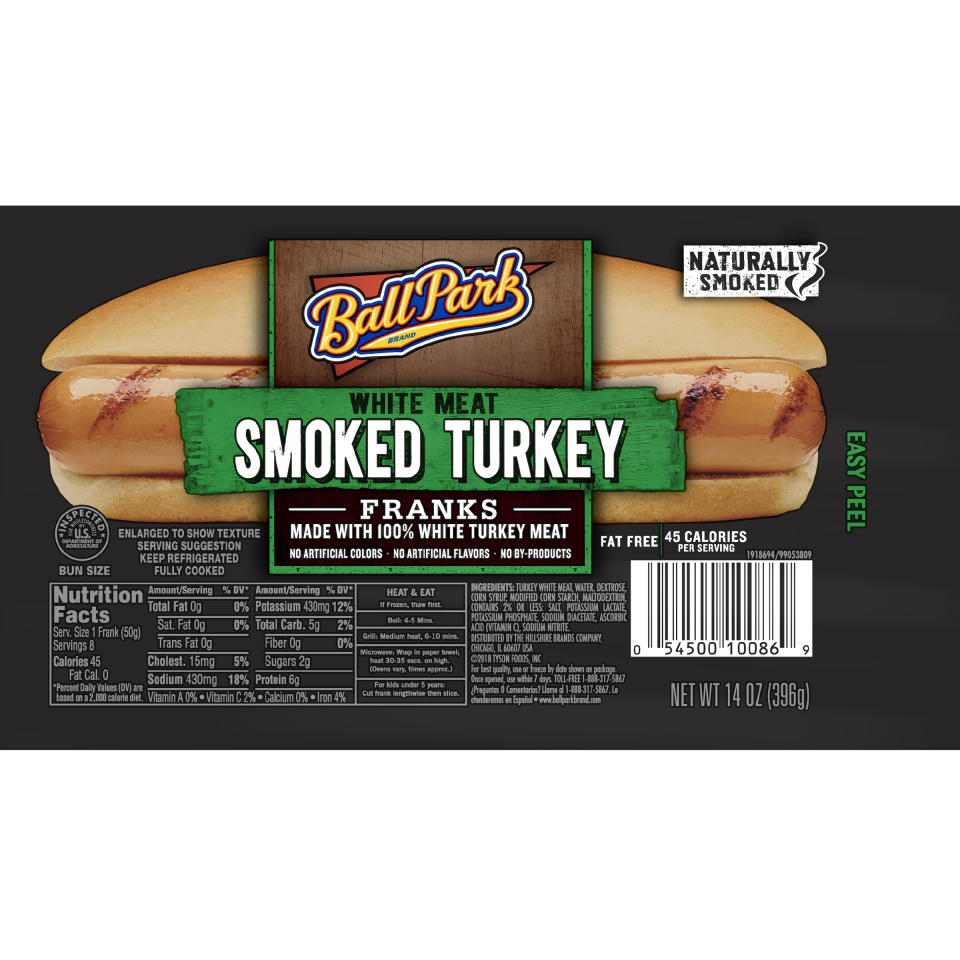
Ball Park's turkey franks contain mechanically separated turkey, which, “to keep it simple, means the meat isn’t coming from a good part of the turkey,” Meshulam said. “It’s more likely ground-up bone paste.” They’re also loaded with sodium, at almost 600mg per dog. (“That’s more than I recommend in a full frozen meal,” Shapiro said.)
A healthy chicken option: Applegate Organics Great Organic Uncured Chicken Hot Dog
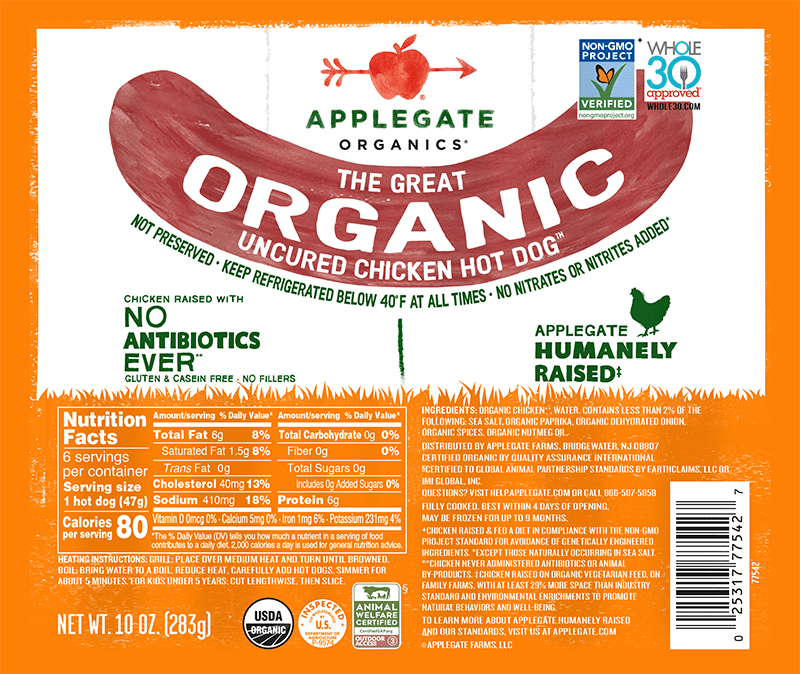
“This is an excellent choice for a hot dog with just a handful of ingredients, including organic chicken, water, sea salt and spices,” Zimmermann said. “There are no artificial or naturally occurring nitrate or nitrite sources either, like celery powder, making it one of the best summer grilling hot dog options.”
A healthy chicken option: Bilinski’s Mild Italian Chicken Sausage with Bell Peppers
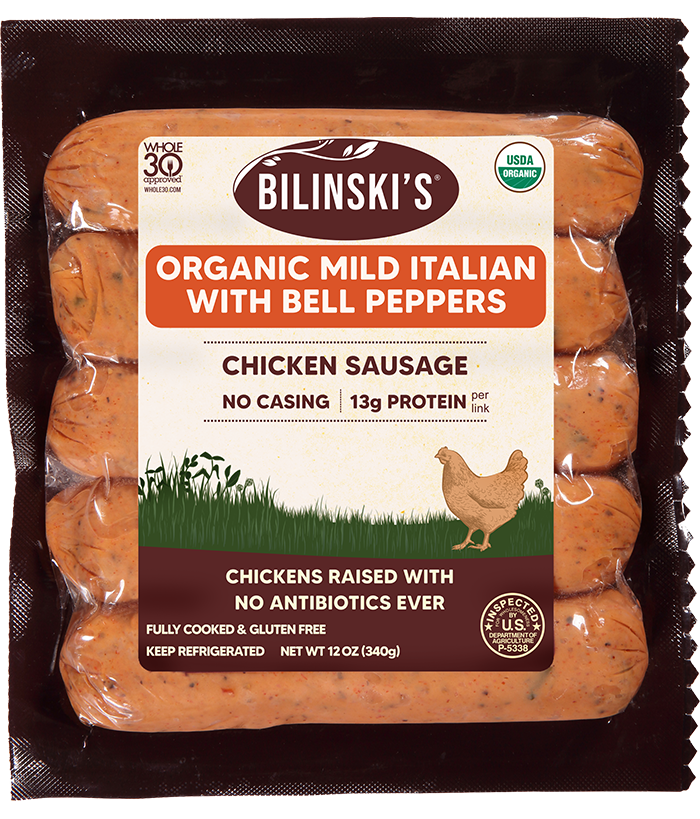
The line of chicken sausages by Bilinski’s are another excellent summer grilling option. “Not only are they made with only organic chicken breast, water and spices, they’re pretty lean,” Meshulam said. The brand’s mild Italian option has only 2.5g of fat per dog (0.5g of that being saturated fat) and 13g of protein.
An unhealthy chicken option to avoid: Gwaltney Original Chicken Hot Dogs
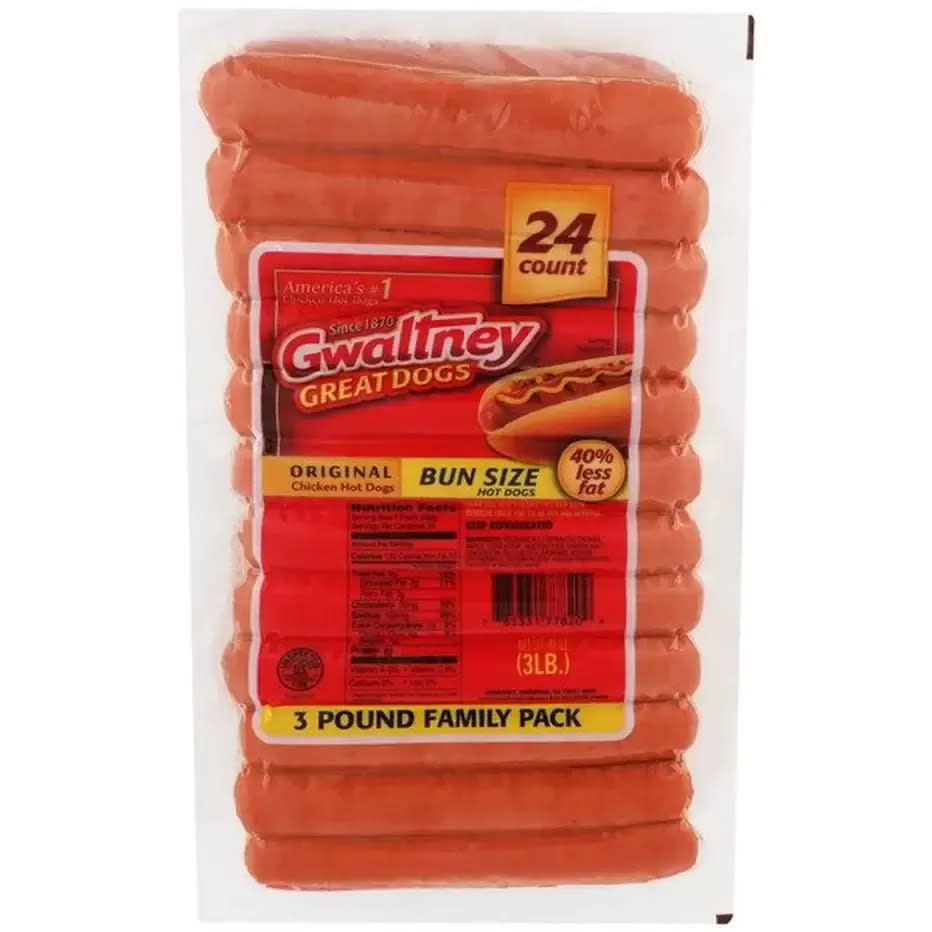
While Gwaltney’s chicken dogs are lower in fat, they contain mechanically separated chicken, which means “you’re not just eating chicken meat, but also tendons, veins and skin,” Shapiro said. On top of multiple sodium sources in the ingredients, this hot dog uses “natural” flavors, which may contain unknown chemicals added during the manufacturing process. “The word ‘natural’ isn’t regulated by the FDA and can mislead consumers,” Zimmermann said. “Overall, the high sodium content and long list of ultra-processed ingredients make this chicken dog a no-go.”
A healthy vegetarian option: Upton Naturals Updog Vegan Hot Dog
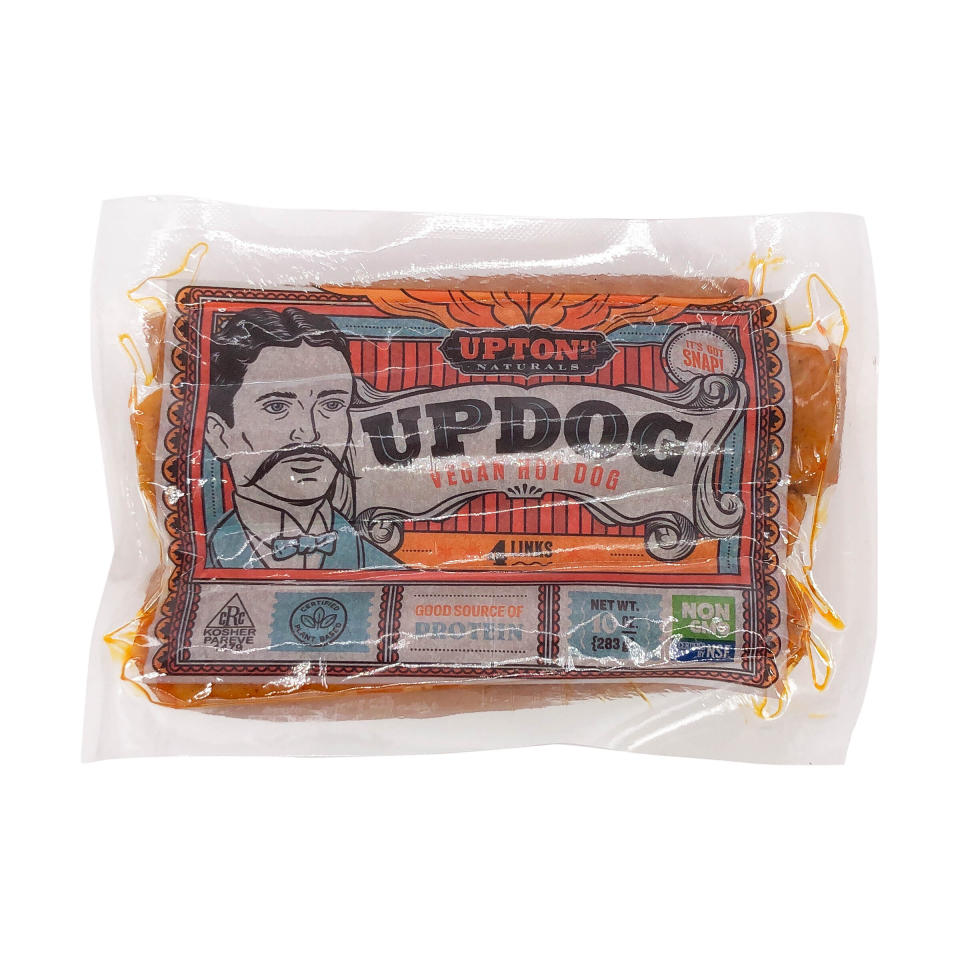
This vegan hot dog alternative has a texture similar to meat. “It contains 19 grams of protein from vital wheat gluten or seitan (the main protein of wheat),” Avena said. “The limited ingredients and preservatives make it a great meat-free hot dog option.”
A healthy vegetarian option: Jack & Annie’s Jackfruit Sausages
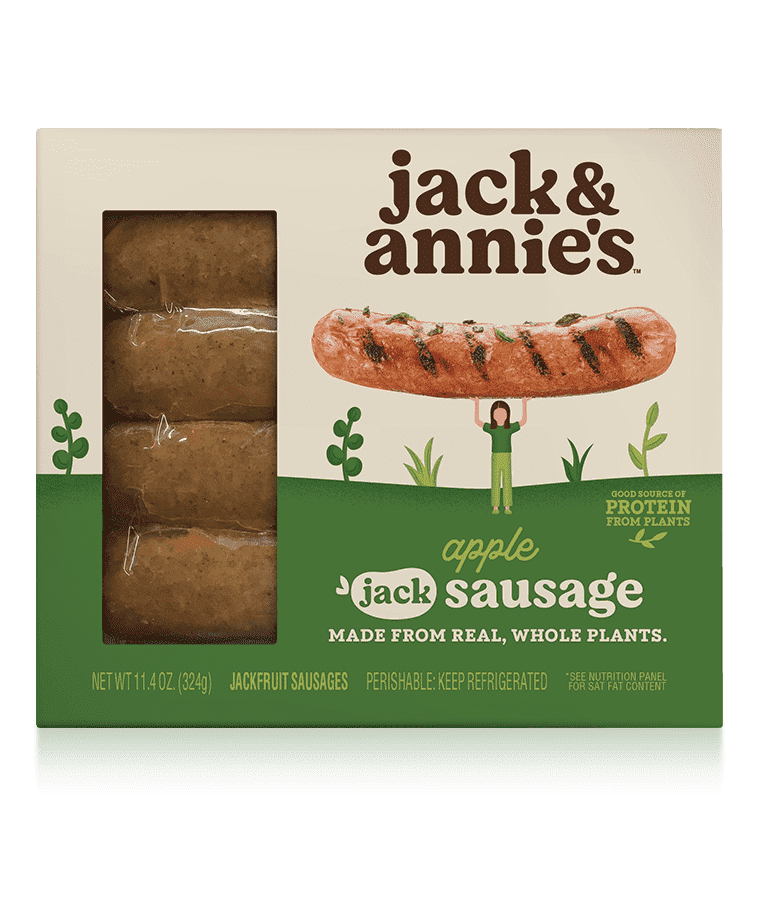
Many “not dogs” out there contain iffy ingredients (like soy protein isolate), inflammatory oils (canola) and lots of stabilizers and additives to make them taste good. “While they’re 100% better for the environment, they’re still very processed products and may not be that much better for your health,” Meshulam said. Instead, go for a real plant-based protein (like tofu, beans or legumes). Jack & Annie’s Jackfruit Sausages, for instance, are made with a base of jackfruit — a plant that eats like your favorite meat — and prepared with natural seasonings.
An unhealthy vegetarian option to avoid: Lightlife Smart Dogs
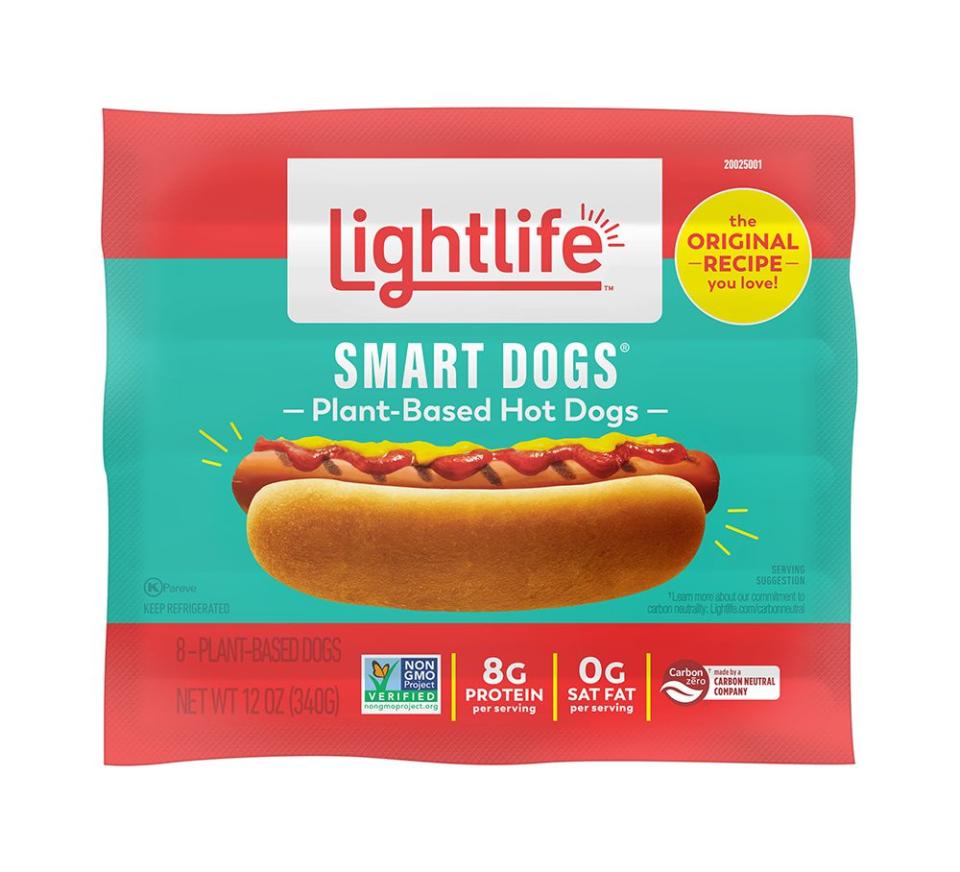
To make these non-meat dogs taste like meat, Lightlife uses a lot of processed ingredients, including soy protein isolate, “a very processed and broken-down form [of] soy I tell my clients to avoid,” Shapiro said. “They also use three different sweeteners, soy and canola oil, guar gum and xanthum gums, too — so many ingredients that cause inflammation in the body.”
What if your favorite hot dog is one of the “unhealthy” options listed above?

If any of your go-to dogs made the “steer clear” list, it doesn’t mean you have to ghost them. “Going to barbecues and eating less healthy foods are part of living a joy-filled life,” Cassetty said.
Her advice? If you feel that no family barbecue is complete without a Ball Park frank in your hand, then have one and enjoy. Just don’t make hot dogs a way of life.
“The occasional hot dog at a barbecue when you’re otherwise eating a mostly healthy diet isn’t going to wreck your health,” Cassetty said. “So pick the one you’ll enjoy and be mindful of your diet as a whole.”
This article originally appeared on HuffPost.


